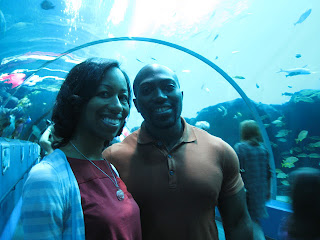I read James Loewen's "Lies my Teacher Taught Me." It's a must read for everyone. I can't emphasize this enough- everyone needs to read this book. All in all, I thought it was challenging and it raised a lot of questions. Nonetheless, given the inquiriesI've been raising about Afrocentricity (i.e. in past posts) and the fact that Loewen brings it up, I think the following analysis might be of interest.
In Lies My Teacher Told Me: Everything Your American History Textbook Got Wrong, James W. Loewen posits that American high school students hold negative views of American history because of the dry, distorted narratives promoted within classroom textbooks. Critically examining classroom textbooks, Loewen argues that political climates, audience, bias, Eurocentricity, power dynamics, and a desire to positively portray the United States, are all reasons why classroom history is distorted. For these reasons (although not exactly visible), cause students dislike and distrust American history . Loewen explores a number of American textbooks to demonstrate how politics and power play a role in the stylizing and presentation of history. Loewen’s analysis and critique are predicated upon, and in promotion of, the following questions: Why do students hate history and how can we make it relevant to students? What can teachers, students, and citizens do to reclaim history? If history is as subjective and dependent upon resources, the power elite, and political schemes, as Loewen strongly asserts, what can be done to dismantle existing textbook narratives and promote other histories and perspectives? As I attempt to explore these questions in this paper with Loewen’s piece as a supplement, I will also reflect upon my own understanding of my teaching style and assert my desire to promote inquiry-driven learning. Nonetheless, I will challenge a point that Loewen makes in regards to teaching “cultural histories.”
In order to address the aforementioned questions, it is perhaps most valuable to consider the attack that Loewen launches on power holders and their influence on how American history is portrayed. With the example of Christopher Columbus, Loewen demonstrates global exploration in various facets prior to Columbus’s documented “discovery” of America. After examining the content of textbooks, Loewen debunks their accounts of Columbus’s exploration exploits, introduces under/misrepresented actors (i.e. Arawak and Taino peoples), and posits why history books avoid discussing “possible histories” (i.e. exploration theories of Afro-Phoenicia to Central America or West African exploration to the Caribbean and South America). In all of this, Loewen asserts that American understandings of history are both the byproduct of, and the propeller, of white oppression of non-whites . A long-lasting legacy of textbook exaltation of Christopher Columbus by special-interest, consumer occupied textbook companies who hope to appease particular audiences through material that is often recycled and repacked, demonstrates that American history in classrooms is at the mercy of textbook writers and unqualified editors. Loewen makes the same assertion through other examples, which range from Helen Keller to the Vietnam War. Inevitably, his critique is marked with an understanding that American classroom history, as it exists today, is smeared with subjectivities and biases.
Loewen slightly touches upon the idea of alternative histories and their presentation, but I would like to push this a bit further. Loewen, like many theorists within the social sciences, asserts that the rise of the Afrocentric theoretical paradigm occurred in response to Eurocentric misrepresentations, which is true. However, Loewen also infers that Afrocentricity, “the kind that has Africans inventing everything good and whites inventing slavery and oppression,” along with other resistant histories, can be just as dangerous as the Eurocentric representations of history that exist today . Without a doubt, I think it is imperative to challenge Loewen on this point.
In arguing for inquiry driven classrooms, Loewen proposes that teachers can help students learn history by being facilitators of it. By promoting history, Loewen asserts that teachers can act as “informed resources” for students as they create history themselves. Loewen proposes that teachers can help students recognize subjectivity and bias by enabling them (students) to create histories that they find relevant. Loewen cites ethnographic projects, textbook critique, and historiography as ways for teachers to make history less boring for students. As I consider the fact that many histories and experiences have been historically overlooked, I cannot help but ask the following: is this enough? Is it enough to give resources? What are the risks of not being intentional in one’s teaching style?
I think that intentionality is necessary, especially in the case of “cultural” histories such as African American, Asian American, and Latino histories (among many others). I do not think that intentionally teaching these subjects with purpose or agency translates to “soft” academic scholarship or inquiry, as Loewen suggests. Regarding his inferences about Afrocentric teaching methods and content, I would like to posit the following: If there exists a plethora of classroom textbooks and secondary resources that favor certain perspectives, is it productive not to have counterexamples by those who are mis/underrepresented? Is it enough for a teacher, for example, to be a reference point as students develop their own histories, which could easily reinforce many of the misrepresentations and misunderstandings that we (teachers) are trying to get them to diverge from? Inherent in both of the proceeding questions, I suppose is the reality that school classrooms are white spaces, which Loewen, to an extent, confirms. If we really want to evoke change in the classroom, would it not be worthwhile to reposition the classroom as “the ideal?"




